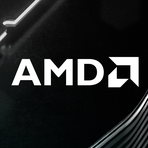Nvidia's Bold Move: Powering Saudi Arabia's AI Ambitions
May 15, 2025, 4:22 am
In a world where technology reigns supreme, Nvidia is making waves. The company recently announced a monumental deal to supply 18,000 of its cutting-edge AI chips to Saudi Arabia. This is not just a sale; it’s a strategic partnership that could reshape the Middle East's technological landscape.
The announcement came during a high-profile visit by President Donald Trump to the Gulf states. This trip was not merely a diplomatic gesture; it was a business expedition, aimed at securing billions in commitments from Saudi Arabia to U.S. companies. Nvidia's deal is a cornerstone of this initiative, highlighting the intersection of technology and geopolitics.
Nvidia's GB300 Blackwell chips are at the heart of this deal. These chips are not just advanced; they are the lifeblood of AI applications, powering everything from data centers to sophisticated machine learning models. The Saudi company Humain, backed by the Public Investment Fund, will utilize these chips to build a robust AI infrastructure. This infrastructure is envisioned as a sprawling network of data centers, capable of handling massive computational tasks.
The significance of this deal extends beyond mere numbers. It symbolizes a shift in the global tech landscape. Countries are no longer passive consumers of technology; they are becoming active players in the AI race. Saudi Arabia, rich in resources, is positioning itself as a tech hub. The kingdom's ambition is clear: to harness AI to diversify its economy and reduce its dependence on oil.
Nvidia's CEO, Jensen Huang, expressed enthusiasm about the partnership. He painted a picture of Saudi Arabia transforming its energy wealth into technological prowess. The Blackwell chips are likened to "AI factories," capable of producing insights and innovations at an unprecedented scale. This metaphor encapsulates the potential of AI to revolutionize industries and societies.
The deal is also a testament to the growing importance of AI in global commerce. As nations scramble to secure advanced technology, Nvidia's chips have become a valuable bargaining chip. The U.S. government recognizes this, using these deals to strengthen economic ties and bolster national security. The recent changes in export regulations reflect this urgency. Nvidia has been required to seek export licenses for its chips since 2023, a move driven by national security concerns.
But Nvidia is not alone in this venture. Advanced Micro Devices (AMD) has also joined the fray, announcing a $10 billion collaboration with Humain. This partnership aims to ensure that Saudi Arabia has access to a diverse range of AI hardware. The strategy is clear: avoid dependency on a single vendor and build a resilient technological ecosystem.
The implications of these deals are profound. They signal a new era of collaboration between U.S. tech firms and Middle Eastern nations. As the region invests heavily in AI, it opens doors for innovation and economic growth. The partnership with Humain is just the beginning. The vision includes deploying "several hundred thousand" Nvidia graphics processing units, a move that could place Saudi Arabia at the forefront of AI development.
The timing of these announcements is crucial. As the global economy grapples with uncertainty, tech firms are looking for new markets. The Gulf states, with their wealth and ambition, present a fertile ground for growth. Nvidia's stock rose more than 5% following the announcement, reflecting investor confidence in the company's strategic direction.
Moreover, this partnership aligns with Saudi Arabia's Vision 2030 initiative, which aims to diversify the economy and promote technological innovation. The kingdom is investing heavily in AI, viewing it as a key driver of future growth. Humain's establishment is a pivotal step in this journey, providing the necessary infrastructure to support AI development.
However, challenges remain. The geopolitical landscape is complex, and partnerships can be fragile. The U.S.-Saudi relationship has seen its ups and downs, influenced by various factors, including human rights concerns and regional conflicts. Yet, the allure of technology and economic collaboration often outweighs these issues.
As the dust settles on this landmark deal, one thing is clear: the future of AI is being shaped by strategic alliances. Nvidia's foray into Saudi Arabia is not just about selling chips; it’s about building a legacy. It’s about transforming a nation and, in the process, redefining the global tech landscape.
In conclusion, Nvidia's partnership with Saudi Arabia is a bold step into the future. It’s a dance of technology and diplomacy, where chips become instruments of power. As the world watches, the implications of this deal will unfold, potentially altering the course of AI development and international relations. The stage is set, and the players are ready. The future is here, and it’s powered by AI.
The announcement came during a high-profile visit by President Donald Trump to the Gulf states. This trip was not merely a diplomatic gesture; it was a business expedition, aimed at securing billions in commitments from Saudi Arabia to U.S. companies. Nvidia's deal is a cornerstone of this initiative, highlighting the intersection of technology and geopolitics.
Nvidia's GB300 Blackwell chips are at the heart of this deal. These chips are not just advanced; they are the lifeblood of AI applications, powering everything from data centers to sophisticated machine learning models. The Saudi company Humain, backed by the Public Investment Fund, will utilize these chips to build a robust AI infrastructure. This infrastructure is envisioned as a sprawling network of data centers, capable of handling massive computational tasks.
The significance of this deal extends beyond mere numbers. It symbolizes a shift in the global tech landscape. Countries are no longer passive consumers of technology; they are becoming active players in the AI race. Saudi Arabia, rich in resources, is positioning itself as a tech hub. The kingdom's ambition is clear: to harness AI to diversify its economy and reduce its dependence on oil.
Nvidia's CEO, Jensen Huang, expressed enthusiasm about the partnership. He painted a picture of Saudi Arabia transforming its energy wealth into technological prowess. The Blackwell chips are likened to "AI factories," capable of producing insights and innovations at an unprecedented scale. This metaphor encapsulates the potential of AI to revolutionize industries and societies.
The deal is also a testament to the growing importance of AI in global commerce. As nations scramble to secure advanced technology, Nvidia's chips have become a valuable bargaining chip. The U.S. government recognizes this, using these deals to strengthen economic ties and bolster national security. The recent changes in export regulations reflect this urgency. Nvidia has been required to seek export licenses for its chips since 2023, a move driven by national security concerns.
But Nvidia is not alone in this venture. Advanced Micro Devices (AMD) has also joined the fray, announcing a $10 billion collaboration with Humain. This partnership aims to ensure that Saudi Arabia has access to a diverse range of AI hardware. The strategy is clear: avoid dependency on a single vendor and build a resilient technological ecosystem.
The implications of these deals are profound. They signal a new era of collaboration between U.S. tech firms and Middle Eastern nations. As the region invests heavily in AI, it opens doors for innovation and economic growth. The partnership with Humain is just the beginning. The vision includes deploying "several hundred thousand" Nvidia graphics processing units, a move that could place Saudi Arabia at the forefront of AI development.
The timing of these announcements is crucial. As the global economy grapples with uncertainty, tech firms are looking for new markets. The Gulf states, with their wealth and ambition, present a fertile ground for growth. Nvidia's stock rose more than 5% following the announcement, reflecting investor confidence in the company's strategic direction.
Moreover, this partnership aligns with Saudi Arabia's Vision 2030 initiative, which aims to diversify the economy and promote technological innovation. The kingdom is investing heavily in AI, viewing it as a key driver of future growth. Humain's establishment is a pivotal step in this journey, providing the necessary infrastructure to support AI development.
However, challenges remain. The geopolitical landscape is complex, and partnerships can be fragile. The U.S.-Saudi relationship has seen its ups and downs, influenced by various factors, including human rights concerns and regional conflicts. Yet, the allure of technology and economic collaboration often outweighs these issues.
As the dust settles on this landmark deal, one thing is clear: the future of AI is being shaped by strategic alliances. Nvidia's foray into Saudi Arabia is not just about selling chips; it’s about building a legacy. It’s about transforming a nation and, in the process, redefining the global tech landscape.
In conclusion, Nvidia's partnership with Saudi Arabia is a bold step into the future. It’s a dance of technology and diplomacy, where chips become instruments of power. As the world watches, the implications of this deal will unfold, potentially altering the course of AI development and international relations. The stage is set, and the players are ready. The future is here, and it’s powered by AI.

